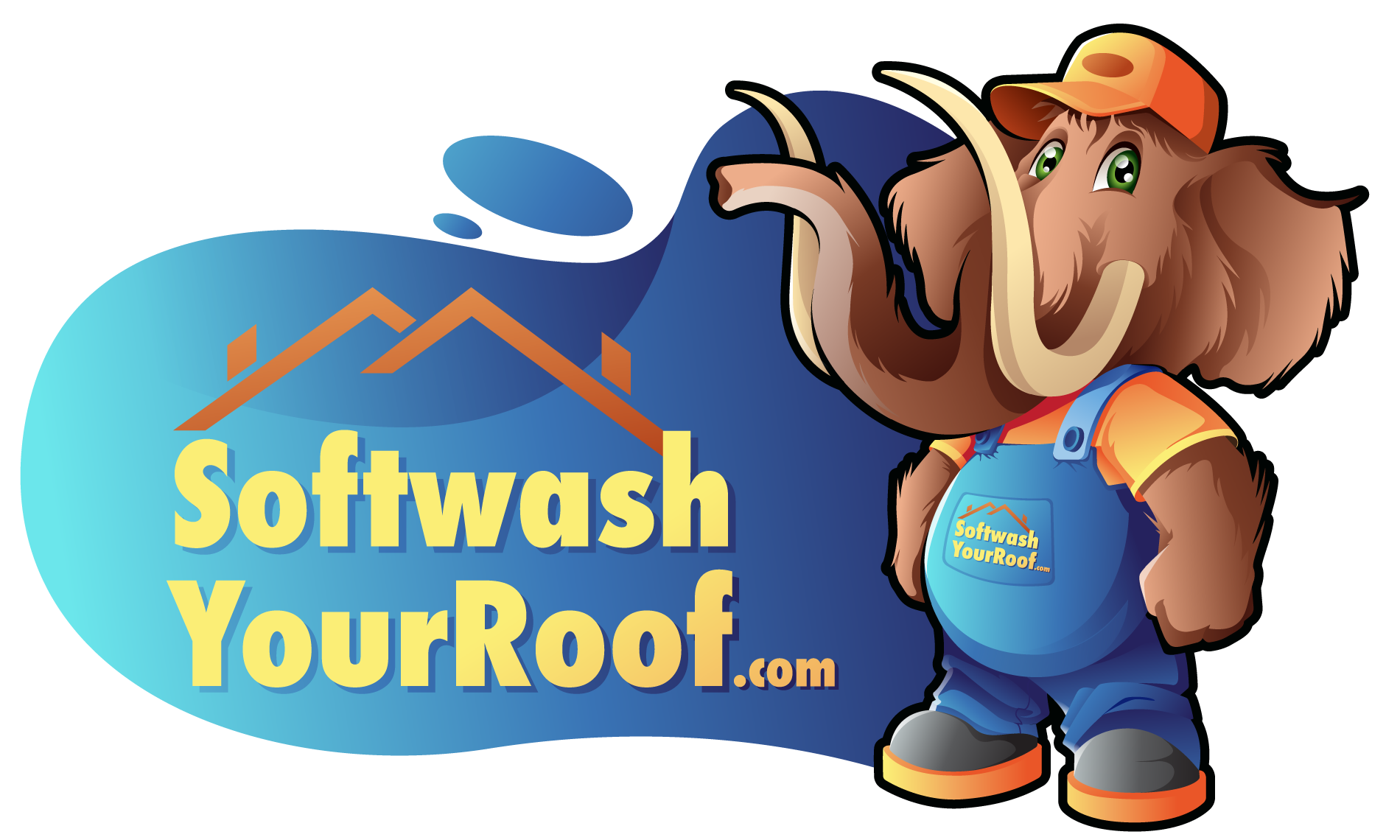Uncovering the Truth: Debunking Soft Washing Myths Once and For All
In the vibrant city of Miami, homeowners often hear about the benefits of soft washing. But what does soft washing mean, and why is it particularly relevant in our humid climate? Simply put, it's a cleaning method that uses low-pressure and specialized solutions to gently remove dirt, mold, and other buildups from exterior surfaces. Understanding this technique is crucial for maintaining the beauty and integrity of our homes, as the humid Miami climate can accelerate the growth of unsightly and potentially damaging organisms on our properties.
We're here to debunk common myths surrounding softwashing. From clarifying that it's different from pressure washing to addressing concerns about its cost, effectiveness, and the chemicals used, our goal is to provide accurate information. We'll also explore why roof soft washing is mentioned among services, emphasizing the expertise and reliability of Softwash Your Roof. By the end of this article, you'll clearly understand why soft washing is a preferred method for keeping our homes in pristine condition.
Myth #1: Soft Washing is the Same as Pressure Washing
Many believe soft washing and pressure washing are identical. This is not true. Let's explore their differences:
Pressure vs. Soft Washing: Understanding the Basics
- Pressure Washing: It involves high pressures, around 1,500-3,000 PSI, to remove grime.
- Soft Washing: This uses lower pressures with soaps and solutions for cleaning.
Key Differences
- Pressure Used: Pressure washing blasts dirt with high-pressure water. This high pressure can be damaging to certain surfaces, such as roofing tiles or siding. Soft washing, however, uses lower pressure alongside cleaning solutions, making it a safer option for these delicate surfaces.
- Cleaning Solutions: Soft washing employs soaps and disinfectants, unlike pressure washing.
- Equipment: Both methods use similar equipment but with different settings to achieve their effects.
Benefits of Soft Washing Over Pressure Washing
- Less Damage: Soft washing is less likely to harm roofing tiles or siding.
- Water Usage: It uses significantly less water, about 10 gallons per minute at 400 PSI.
- Safety: Soft washing is safe for all exterior home surfaces, reducing the risk of damage.
Understanding these differences clarifies why soft washing is often the preferred choice for cleaning homes, especially in delicate areas like siding and roofs.
Myth #2: Soft Washing is Only for Roofs
Soft washing is for more than just roofs. This gentle cleaning method is effective on many home surfaces. For instance, imagine your windows, gutters, and siding being cleaned without causing harm. This method uses low-pressure and cleaning agents. It's suitable for surfaces that could be damaged by high pressure. An experienced contractor knows how to avoid costly repairs. They understand the best PSI levels and cleaning solution mixes.
Surfaces Suitable for Soft Washing
- Roof: Eliminates dirt and prevents damage to shingles.
- Windows and Gutters: Cleans without causing harm.
- Siding and Patio: Removes built-up grime and bacterial residues.
- Driveway and Pool Deck: Effectively lifts stains without damage.
- Historical Buildings: Cleans delicate surfaces without harm.
Soft washing uses equipment similar to power washing but with crucial adjustments. It combines low-pressure water flow with environmentally friendly cleaning solutions. This approach is less harmful to surfaces like stucco, wood, and roofing materials, making it a versatile cleaning method.
Myth #3: Soft Washing is Expensive
Many believe that soft washing is an expensive option compared to traditional methods. However, this is only partially accurate. Let's break down the costs associated with soft washing:
- Initial Costs vs.Long-Term Savings:
While the initial cost of soft washing might be higher, it offers long-term savings and peace of mind. The specialized solutions used in soft washing clean and prevent future mold and algae growth. This means less frequent cleanings and, ultimately, significant cost savings. You can rest easy knowing that your home is protected and its beauty is maintained. - Preventative Measures:
Soft washing is a preventative measure that keeps your home in excellent condition and avoids costly repairs. Investing a bit now in soft washing can save significant money that might otherwise be spent on repairs due to damage from harsher cleaning methods. - Comparative Costs:
Soft washing is considerably more economical than repainting or extensive repairs. It provides a deep clean and refreshes the appearance of your home at a fraction of the cost of repainting. - Commercial vs. Residential Soft Washing:
The cost of soft washing a commercial property can vary greatly depending on several factors, such as size and the level of soiling. However, regular maintenance can reduce these costs over time. - Market Variations:
Prices for soft washing services can differ depending on your geographical location and the local market rates. For the most accurate pricing, it's beneficial to get a detailed quote tailored to your specific needs.
By understanding these aspects, homeowners can see that soft washing is not only a viable option but also a cost-effective one in the long run.
Myth #4: Soft Washing Chemicals are Harmful
Many homeowners worry about the safety of soft washing chemicals. They fear these solutions might harm people, pets, or plants. Let's debunk this myth by understanding the chemicals used and their impact.
Understanding Soft Washing Chemicals
- Primary Ingredient: The main chemical in soft washing is sodium hypochlorite, a common household bleach, which is mixed with water to create a cleaning solution. This solution is typically diluted to a safe level for use on exterior surfaces.
- Purpose: This blend kills algae, mold, mildew, moss, and lichen. These are common issues on roofs and sidings.
- Surfactants: These agents help the cleaning solution spread more evenly. They loosen dirt, grime, and other contaminants for easy rinsing.
Environmental and Safety Concerns
- Eco-friendly: Soft washing chemicals are designed to be environmentally friendly. They target harmful organisms without damaging the surroundings.
- Plant Safety: Products like ProTool Post Rinse neutralize any residual chemicals, protecting plants and metal fixtures from potential harm.
- Professional Application: Certified professionals, who are trained in the proper use of soft washing chemicals, know how to use these chemicals safely. They ensure that your home and environment are not at risk. Their expertise and experience are crucial in ensuring the safety and effectiveness of the softwashing process.
Conclusion
When used correctly, soft-washing chemicals are not harmful. They provide an effective and safe way to clean your home, ensuring the health and safety of your family. Always choose trained professionals for soft washing services. This ensures the health of your home, family, and the environment.
Myth #5: Soft Washing Doesn’t Work
Contrary to the belief thatsoft washing is ineffective, it is a highly efficient method for cleaning various surfaces. This technique removes dirt, grime, and contaminants without causing damage. It also prevents the future growth of algae, mold, and other organic matter. This means your surfaces stay cleaner for longer. Let's delve deeper into the effectiveness of soft washing.
Effectiveness Across Different Surfaces
- Sensitive Surfaces: To avoid damage, vinyl siding and other delicate materials require soft washing.
- Roofs and Siding: Soft washing eliminates harmful growths, protecting these areas.
- Outdoor Areas: Decks, patios, and fences benefit from grime and bacteria removal.
The Science Behind Soft Washing
- Cleaning Solutions include bleach for disinfection and surfactants for better coverage.
- Neutralizers: They protect against chemical runoff, safeguarding plants and materials.
- Odor Removers: These ensure a clean and fresh appearance post-wash.
Benefits Of Pressure Washing
- Less Damage: It's unlikely to harm roofing tiles or siding, making it a safer option.
- Environmental Impact: Using less water and biodegradable chemicals reduces ecological footprint.
- Versatility: Effective for various surfaces, including historical buildings and commercial properties.
Long-Term Advantages
- Durability: Surfaces remain clean longer, reducing the need for frequent washing.
- Curb Appeal: Enhances the appearance of homes and businesses, leaving a lasting impression.
- Health Benefits: Improves indoor air quality by removing external mold, mildew, and algae growth.
Soft washing is not just a cleaning method but also a form of preventative maintenance. It extends the exterior surfaces' lifespan and prevents harmful residue buildup. This method is versatile, environmentally friendly, and, most importantly, effective.
Conclusion
Throughout this article, we've debunked several myths about soft washing, from its effectiveness to the safety of the chemicals used. This method is far from identical to pressure washing, offering a gentler yet equally effective solution for cleaning exterior surfaces. It serves not just roofs but a variety of surfaces, debunking the myth that it's costly by highlighting its long-term savings. Moreover, concerns about chemical harm have been addressed, emphasizing the environmental friendliness and safety of homes in Miami.
Recognizing the importance and benefits of soft washing, especially in a humid climate like Miami's, is critical to maintaining the integrity and beauty of our homes. This method can prevent damage, save long-term costs, and ensure a cleaner home environment. For those thinking about this effective cleaning method, please contact Softwash Your Roof for a free quote, providing professional service and peace of mind.





